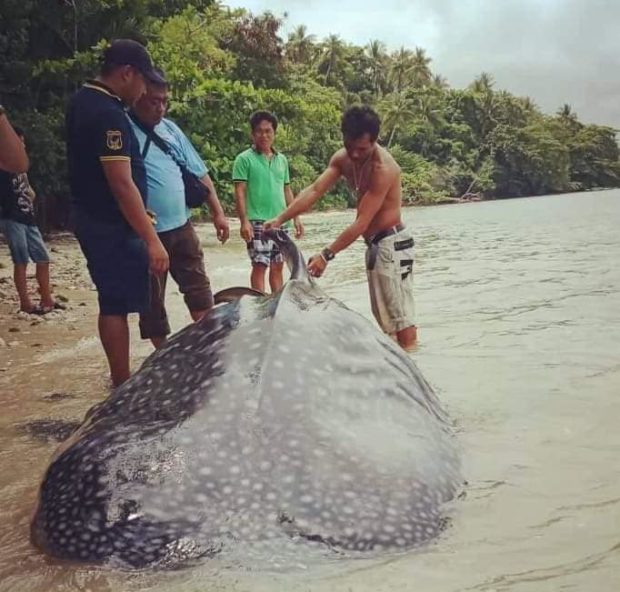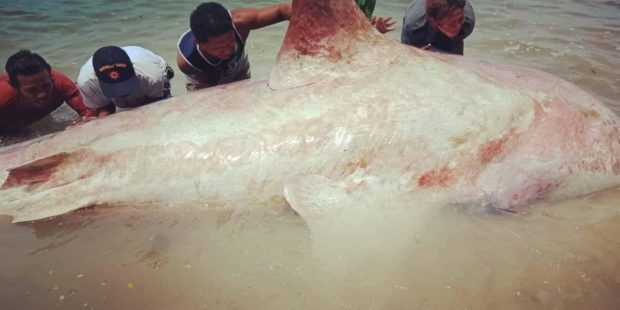Beached whale shark in Masbate ‘possibly hunted,’ says BFAR

BFAR Bicol personnel handle the remains of the beached male juvenile whale shark (Rhincodon typus) that was found floating off the coast of Cataingan town in Masbate province. Bruises and wounds were later seen on the body, leading BFAR to believe the animal was also hunted down. Photos by Marcelino Britanico/BFAR Bicol.
LEGAZPI CITY –– A male juvenile whale shark (Rhincodon typus) found floating off the coast of Cataingan town in Masbate Tuesday may have been hunted, the spokesperson of the Bureau of Fisheries and Aquatic Resources (BFAR) Bicol told the Inquirer Friday.
Nonie Enolva, BFAR Bicol spokesperson, said the whale shark had bruises on its ventral or bottom part and two wounds on its dorsal fin.
“It may have been beached the previous night,” Enolva told the Inquirer. She said the dorsal fin wounds “look like they were caused by a sharp object like a bolo.”
“I have seen a lot of propeller cuts and the wounds didn’t look like they were from propellers,” Enolva said.
Enolva said a certain Joseph Sirtimo reported the whale shark swimming around 5 a.m.
Article continues after this advertisementBy 6:30 a.m., she said, the low tide may have caught the whale shark, beaching it to the shores of Sitio (sub-village) Laao in Barangay Pawican.
Article continues after this advertisementEnolva, however, said they could not determine the real cause of its death because no necropsy was undertaken before it was buried on site.

Whale sharks, locally known as butanding, need to constantly move through the water to get its oxygen.
The whale shark, the world’s largest living fish, was listed internationally as an endangered species in 2016 from its previous vulnerable status, making it one of the species that may be extinct, if not protected.
For 16 years since 2000, it was listed as vulnerable, but the International Union for Conservation of Nature and Natural Resources has seen a decline in the population, citing threats such as fishing and harvesting, propeller injuries or vessel strikes, irresponsible tourism, and oil and gas drilling. /lb